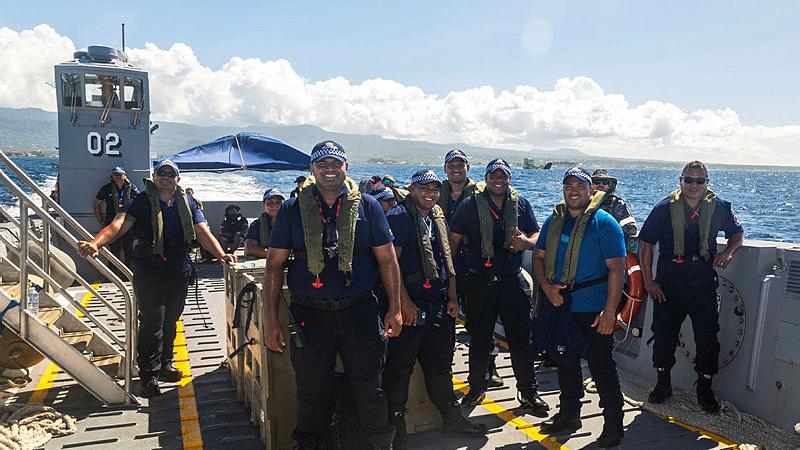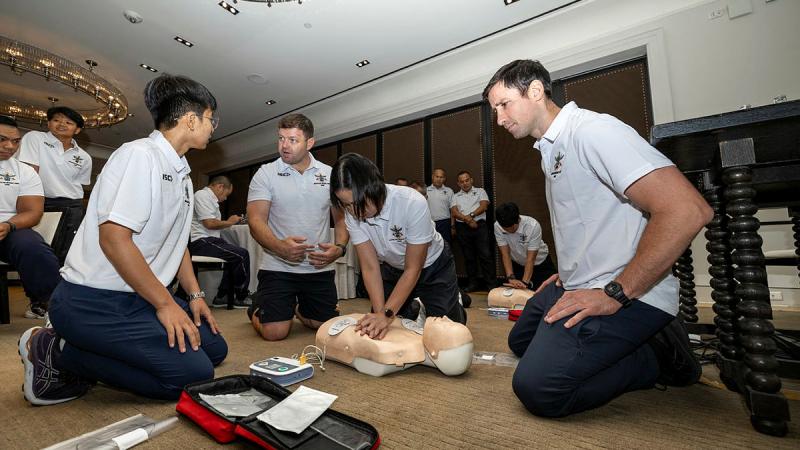Speakers urged the Security Council today to prevent northern Gaza’s descent into famine amid relentless death and destruction, as the 15-member body convened an emergency meeting in response to experts’ warnings that immediate action is required within “days, not weeks” to avert the scourge.
“The humanitarian and human rights situation for Palestinian civilians across Gaza is catastrophic,” underscored Ilze Brands Kehris, Assistant Secretary-General for Human Rights, highlighting the Integrated Food Security Phase Classification’s recent alert of imminent famine in the Strip’s northern areas.
In this regard, she appealed to the Council to take all steps within its powers to influence the parties to end violations, facilitate impartial humanitarian access and protect civilians. Israel’s destruction of Gaza’s civilian infrastructure “contributes directly to the famine risk being discussed today”, she noted, stressing that “the use of starvation of the civilian population as a method of warfare is strictly prohibited under international humanitarian law”. Noting the High Commissioner for Human Rights’ recent report on the human rights situation in Gaza, she highlighted that: “The manner in which the Israeli military is conducting operations in northern Gaza suggests not only that Israel’s actions are seeking to empty northern Gaza of Palestinians, by displacing survivors to the south, but points to further grave risks of atrocities of the most serious nature.” Palestinian armed groups must also comply with international humanitarian law, but failure by Palestinian armed groups to comply with international humanitarian law does not remove or reduce the obligation of Israeli forces to comply, she stressed.
Further, “there must be accountability – due reckoning with respect to the allegations of serious violations of international law” through credible and impartial judicial authorities. “In line with the International Court of Justice’s advisory opinion and General Assembly resolution ES-10/24, Israel must end its continued presence in the Occupied Palestinian Territory as rapidly as possible, allowing the Palestinian people to exercise their right to self-determination,” she said.
“Men, women, boys and girls are effectively starving as the conflict rages […],” underscored Rein Paulsen, Director, Office for Emergencies and Resilience, Food and Agriculture Organization (FAO) via videoconference. Prior to 7 October, Gaza was largely self-sufficient in vegetables, eggs, fresh milk, poultry and fish, and local agriculture also produced much of the red meat and fruits consumed inside Gaza, he said. Today, nearly 70 per cent of Gaza’s cropland has been damaged or destroyed since the escalation in hostilities started in 2023, and almost 95 per cent of cattle, and more than half of sheep and goat herds, are now dead.
“The window of opportunity to deliver this assistance is now, today, not tomorrow,” he stressed, renewing FAO’s calls for urgent diplomatic efforts from across the international community to address conflict-induced food insecurity. He further urged Council members to remind all parties to the conflict of their responsibility to protect civilian infrastructure, critical to the delivery of humanitarian aid, and to ensure the proper functioning of agrifood systems and markets in situations of armed conflict. Peace is a prerequisite for food security, and the right to food is a fundamental human right, he stressed.
Also briefing the Council was Joyce Msuya, Acting Under-Secretary-General for Humanitarian Affairs and Acting Emergency Relief Coordinator, who declared: “As I brief you, Israeli authorities are blocking humanitarian assistance from entering North Gaza, where fighting continues, and around 75,000 people remain with dwindling water and food supplies.” Citing violent armed lootings of UN convoys, the closure of food assistance kitchens and the diminishing daily food distribution, she warned that the Israeli Knesset legislation to ban activities of the United Nations Relief and Works Agency for Palestine Refugees in the Near East (UNRWA) starting in January, if implemented, will be “another devastating blow to efforts to provide lifesaving aid and avert the threat of famine”.
Parties must ensure that civilians’ essential needs are met and must facilitate unimpeded humanitarian access to those in need, wherever they are, she said, emphasizing: “Now is the time for Member States to use their leverage to prevent and stop violations of international humanitarian law – through diplomatic and economic pressure, responsible arms transfers and combating impunity. Now is the time for the Security Council to use its powers under the UN Charter to ensure compliance with international law and full implementation of its resolutions.”







